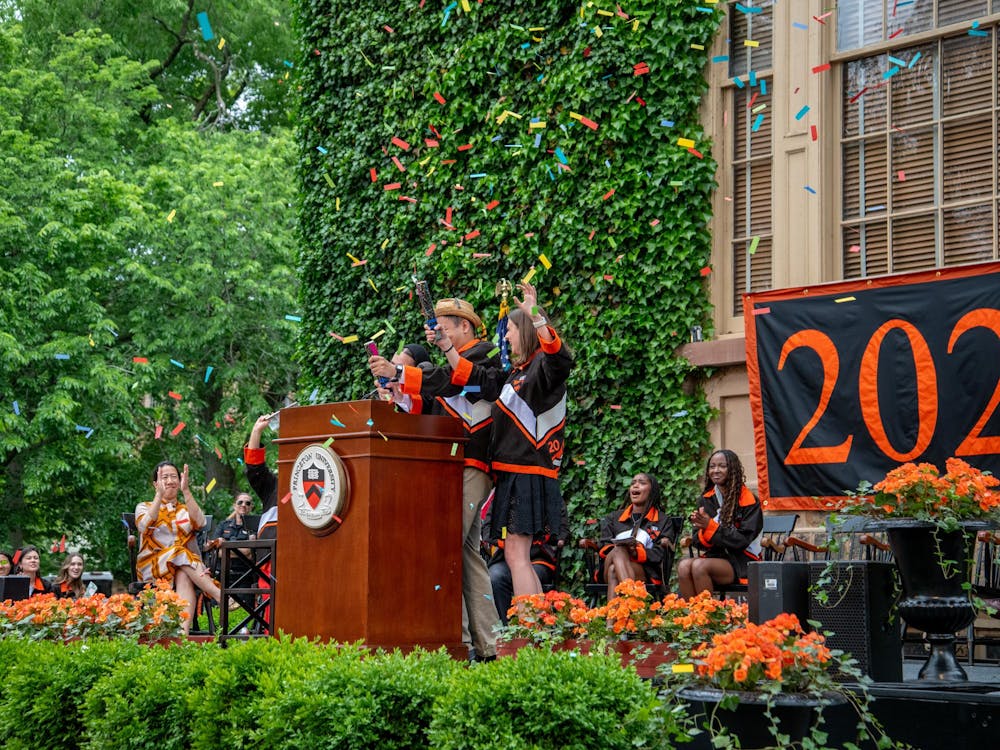Yet it took me an entire semester freshman year to realize that not only were students missing a reading or two but that many were deliberately cutting out passages — sometimes whole books — they deemed unnecessary for future essays and tests. Many students take text-heavy courses under the assumption that they will be unable to complete all the reading. With this attitude, they perceive the assigned readings on their syllabi as an absurdly long list of suggestions. Sometimes professors list “recommended readings” on the syllabus, but in a culture where the mandatory readings go unread, optional ones have no chance.
This attitude has resounding consequences for academics at Princeton. The most obvious area affected is precepts. The online booklet “Inspired Conversations” defines Princeton precepts as an opportunity for students to “share their insights, challenge each other’s ideas, apply broader concepts or skills to the analysis of particular problems or issues, clarify their thinking and argue through controversial topics.” This is not a forum to rehash the main themes of the assigned reading. And yet many precepts turn into unofficial examinations where preceptors ask questions that test our basic familiarity with the text. These Q-and-A sessions are monotonous for everyone and a bitter waste of time for those who have finished the readings.
Even beyond precept, the value of any given course is halved when a student chooses not to follow the syllabus. Professors don’t arbitrarily suggest sources to prove how well read they are or to make us miserable; they have deliberately designed a framework wherein we can most accurately and fully grasp the subject matter. The best lectures build on the readings — if you have not completed them, you will have trouble following and will miss much of what passes in class. Some professors, however, spend an unwarranted amount of time repeating the contents of assigned books and essays because they assume that many of their students have not done their homework. This is unfair to those who are keeping up with the syllabus. Lecture should not be a Sparknotes review session.
Workloads can be extremely heavy, and it’s reasonable for students to fall behind now and again. On the other hand, when students and teachers set their expectations so low that precept and lecture are constructed around the assumption that readings will go unread, it is time to reconsider the original curriculum. Course evaluations should contain more specific questions related to the amount of reading completed and include a section investigating why students do not cover all of the assigned texts. If the majority of students in a class agree the reading load was impossible to keep up with, the professor needs to trim down the syllabus.
If, on the other hand, students report that readings were not a priority or that the readings for all of their courses combined were too much to handle, we need to take another look at the academic environment in which these are fair excuses. When a student does not prioritize course readings, that individual’s grades, and not the quality of precept or lecture, should reflect their choice. If students can’t keep up with three or four reading-heavy courses, they need to take this into account when they pick classes.
Most students would never enter a computer science class planning on completing 60-75 percent of the problem sets. This is, sadly, less because students recognize that problem sets are necessary for their grasp of the course material than because their grade depends on finishing these assignments. There is currently no equivalent way of ensuring students have completed all of their humanities coursework. Sadly, bluffing one’s way through precept is all too common. Students can easily score lots of participation points while dragging down the overall quality of the discussion.
This is not to say our literature courses should start throwing quizzes at us every precept. One of the greatest advantages of humanities and social science courses is that students taking them have a sense of learning for the sake of learning. The saddest part of the culture of unfinished readings is the significance it has for our perception of coursework. Assigned readings are judged by how relevant they are in terms of future essays and exams. We do not read to learn; we read to get good grades.
If professors and preceptors have high expectations of what we can accomplish at the outset of a course, we should do our best to meet them. The default attitude in math and natural science courses is, “I can and will complete my assignments.” The humanities and social sciences deserve the same approach.
Tehila Wenger is a sophomore from Columbus, Ohio. She can be reached at twenger@princeton.edu.








